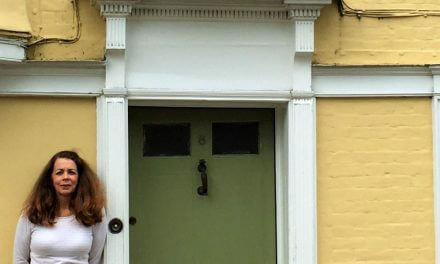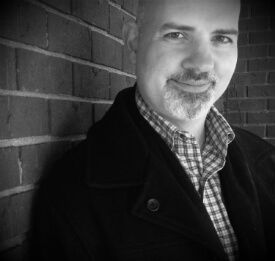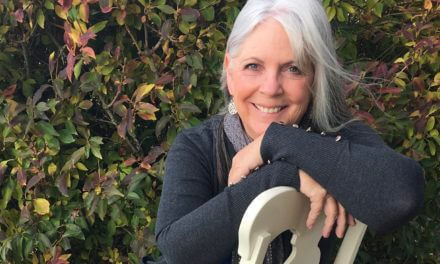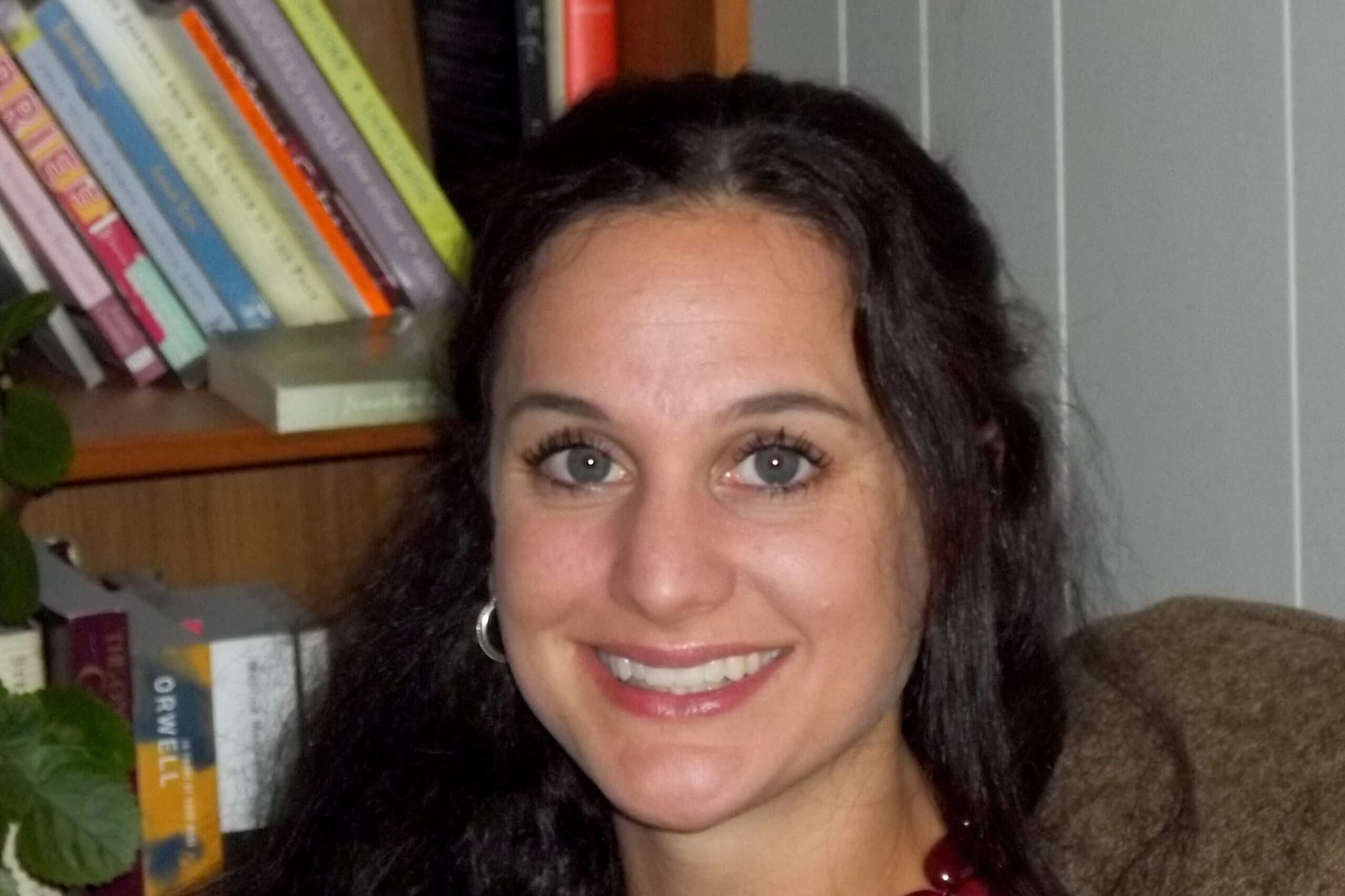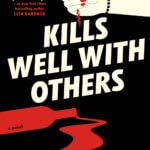Joining me today is Densie (not Denise) Webb. She grew up in Louisiana, spent thirteen years in New York, and settled in Austin, TX, where it’s summer nine months out of the year. She’s an avid walker (not of the dead variety, though she loves anything to do with zombies, vampires or post-apocalyptic worlds), drinks too much coffee, and has a small “devil dog” that keeps her on her toes. She has arrested development in musical tastes, and her two children provide her with musical recommendations on a regular basis.
Densie’s had a long career as a freelance nonfiction writer and editor, specializing in health and nutrition and has published several books and tons of articles on the topic. Her debut women’s fiction novel, When Robins Appear, was published by Red Adept Publishing (2020). Her paranormal romance novel, Le Remède was published by Wild Rose Press. She is currently working on a domestic suspense novel and another women’s fiction novel.
She is a member of the Women’s Fiction Writers Association, is a contributor to Women Writers, Women’s Books, and a daily “tweeter” for WriterUnboxed.com.
SS: If you have children, does being a parent influence your writing? To what extent?
DW: That would be a YES! I have two grown children and my new novel, When Robins Appear, is all about motherhood and the decisions women sometimes have to make about forming families. Actually, all of my stories have involved motherhood to some degree, whether it’s biological motherhood or motherhood by circumstance. It’s only been in retrospect that I realized I’m drawn to writing stories about all the ways families are created and sometimes broken.
SS: How long have you considered yourself a writer? Did you have any formal train, or is it something you learned as you went?
DW: I’ve been a freelance writer and editor pretty much my whole career, focused on writing about health and nutrition. I have a Ph.D. in nutrition/biochemistry, and I’m a registered dietitian. However, the term “freelance writer” connotes work for hire. Calling myself a “writer” suggests creativity. There’s some creativity involved in writing about health and nutrition, but nothing compared to writing a novel. I will say that being a freelance writer all those years gave me experience with language that I might not have had otherwise. I had no formal training in writing. I’m basically self-taught, which included attending writing workshops, conferences and webinars. And I’m still learning. Always.
SS: A Ph.D. in Biochem! I’m impressed. In pre-med, I had a hard time getting through General Chemistry. I only made it through Bryn Mawr’s Organic Chemistry class was because I could cook. I’m convinced What are you working on at the moment?
DW: I’m working on two projects. One is a recasting and rewriting of an older manuscript—turning a romantic suspense into more of a domestic suspense. It involves a celebrity stalker and the effects she has on the victim and the people around him. The second one is straight-up women’s fiction about the relationship between a young Irish musician and an Austin girl and how that plays out over the years. And yes, motherhood is involved.
SS: When you are creating a story, do you avoid reading books in the same vein so as not to be influenced by other writers, or do you seek out all possible variations for maximum inspiration?
DW: I’m definitely in the camp of reading from the same genre for inspiration as I write. I also like to delve into more literary novels that, hopefully, improve my own writing.
SS: Do you believe in writer’s block? How about reader’s block?
DW: I don’t think of it so much as a block, as a lull or a lack of inspiration. Sometimes the ideas won’t stop. Other times, it impossible to force the words onto the page. But, I think it has more to do with life circumstances—time, opportunity, stress—than it has to do with a “block.” The same with reading. I’ve gone through periods where I just can’t concentrate on the page. Other times, I can’t read fast enough and I’m ready to open the next book. It all depends.
SS: Writers are often believed to have a muse, your thoughts on that?
DW: Funny you should ask. I wrote a blog post about that on Women Writer’s Women’s Books a while back. In it, I admitted that for some writers, a lack of belief in the muse borders on blasphemy. As I say in the blog post, if a muse is a person who inspires you, yes, I believe in that. But if it’s some ephemeral entity that enters the room at will to inspire your writing—no, I don’t believe in that. Writing is a combination of imagination, creativity, language skills, and a double dose of patience and perseverance.
SS: Do you ever incorporate something that happened to you in real life into your novels?
DW: Always. It may be a feeling, a belief, a doubt, a fear. Sometimes it’s an actual event, but more often it’s something related to a personal experience that can be altered and incorporated into the story.
SS: Khaled Hosseini (The Kite Runner) feels he discovers a story rather than creates it. Are you a plotter? Or do you let the novel develop organically?
DW: I guess I’m a discoverer. I’ve tried to be a plotter, but my brain just doesn’t work that way. I usually know how I want the story to begin and end. The rest I figure out as I write. I have a lot of writer friends and acquaintances, who are super plotters. They plan out each scene and write out characters’ backstories before they even write the first page. I’ve really tried with index cards, outlines, etc. But it just doesn’t work for me. Usually when I’m about half-way to two-thirds done with a story, I will stop and write out timelines to make sure the series of events makes sense, especially if there’s a pregnancy or a school year or a changing of the seasons. But that’s about as deep as I get with “plotting.”
SS: I’m in the same boat, Densie. By the time I’ve plotted out a book, it feels written. The “magic” is gone. What is your most recent book? In twenty-five words or less, tell me why a reader should start your book next.
DW: I’m stealing from reviewers of When Robins Appear. “From start to finish, I was engrossed in this beautifully written, page turning novel. I fell in love with the characters, feeling like I was among friends and family.” How’s that?
SS: At what point did you come up with the title? Did your publisher change it?
DW: I don’t get asked this question often. The answer is that I had a title for a couple of years as I was writing the book. I submitted it to my publisher with that title, but I got a call to let me know it was a no-go. I fretted over it for a while and came up with some options. I did a Facebook poll and came up with When Robins Appear as a winner. I’m very pleased with it, and I love the cover tie-in.
SS: Do you know the ending to your story when you put pen to paper? If so, have you ever changed the ending after you started to write?
DW: As I mentioned before, I generally know how I want a story to end before I start. A lot of the details change and maybe things are added, but I always know the core of how I want a story to end before I start. The same was true of When Robins Appear.
SS: Do you believe in real-life happily-ever-afters? Does women’s fiction have to have an HEA?
DW: In a word no. Life isn’t like that. When it comes to HEA endings, that’s mostly true of romance novels. Women’s fiction can be happy for now or bittersweet. My stories tend to have bittersweet endings. I like stories that make me cry. That might sound masochistic, but those are the stories that linger long after I’ve read the last page. My hope is that When Robins Appear will have that same effect on my readers.
********************
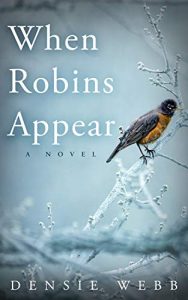
Amazon | B&N | Apple | Google Play | Kobo
********************
An excerpt from When Robins Appear:
The incessant yapping of the Jack Russell next door pulled me from an unsteady sleep. I rubbed my eyes, looked over at my husband, and listened to his muffled snores before I grabbed my phone and glanced at the time—two o’clock in the morning. The creak of the hardwood floors was always the comforting signal that Amanda had made it home safely as she tried, in vain, to stealthilyslip up the stairs and into her room. Only after I heard that sound could I fall into a deep, satisfying sleep. That night, there had been no telltale creak.
I sat up, snatched the powder-blue L.L. Bean robe Richard had given me five Christmases ago, and headed toward Amanda’s bedroom. I opened her door, pushed aside the silver-beaded curtain, and squinted into the dark. I frantically flipped on the light to confirm that the moonlit shadows weren’t playing nasty tricks on me. Her bed was empty. I placed my hand on the permanent impression her body had left on the mattress. Cold.
I tiptoed back to our bedroom, retrieved my phone from the nightstand, and rushed downstairs, out of earshot of Richard, to call Amanda. No answer. Her voicemail picked up. “Not the real me. You know what that means … leave a message.”
“Where are you, Amanda? You were supposed to be home two hours ago. Call me!”
I texted her. Once. Twice. Three times.
I sank into our newly upholstered sofa—graphite linen. Amanda had insisted it was “classy” and made a gagging motion when I’d pointed at a watercolor chintz pattern. I ran my fingers over the coarse fabric as I stared at the ticking clock on the wall. I clasped my cell phone, my unanswered text messages staring back at me, as the fingernails of my other hand dug painfully into my palm. I slowly stood, headed to the kitchen, and set about making a cup of tea. Coffee was my morning wake-up call, but tea was my middle-of-the night comfort. Every few minutes, I checked the time.
2:10 a.m. Who’s driving? Please, please, don’t let it be Hadley. Sweet girl, but scatterbrained and reckless, just like Ray was at that age. Ray. A painful sense of regret crept into my chest, lugging incessant second-guessing and self-blame along with it.
2:15 a.m. Why did I have that argument with Amanda right before she left for the concert? She was dragging her feet with college applications and accused me of being a nag. She actually called me a nag. A delay in her college applications had seemed monumental just a few hours before, but it hit me how truly inconsequential it was. Amanda would be leaving for college in a year, and our relationship, which had always felt airtight, was slowly deflating. Our faltering mother daughter connection created an emotional undertow that pulled me even deeper into my ocean of worry.
********************
You can follow Densie here on social media:
Website | Email | Twitter | Instagram | BookBub | Goodreads
********************
This post contains Amazon Affiliate links. As an Amazon Associate, I earn a small amount from qualifying purchases.

